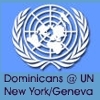

| POVERTY We are witnessing in countries throughout the world the expansion of prosperity for some, unfortunately accompanied by an expansion of unspeakable poverty for others. This glaring contradiction is unacceptable and needs to be corrected through urgent actions. Globalization, which is a consequence of increased human mobility, enhanced communications, greatly increased trade and capital flows, and technological developments, opens new opportunities for sustained economic growth and development of the world economy, particularly in developing countries.. At the same time, the rapid processes of change and adjustment have been accompanied by intensified poverty, unemployment and social disintegration. Threats to human well-being, such as environmental risks, have also been globalized. Furthermore, the global transformations of the world economy are profoundly changing the parameters of social development in all countries. The challenge is how to manage these processes and threats so as to enhance their benefits and mitigate their negative effects upon people. More than one billion people in the world live in abject poverty, most of whom go hungry every day. A large proportion, the majority of whom are women, have very limited access to income, resources, education, health care or nutrition, particularly in Africa and the least developed countries; The major cause of the continued deterioration of the global environment is the unsustainable pattern of consumption and production, particularly in industrialized countries, which is a matter of grave concern, aggravating poverty and imbalances.  Over
120 million people world wide are officially unemployed and many more
are underemployed. Too many young people, including those with formal
education, have little hope of finding productive work; Over
120 million people world wide are officially unemployed and many more
are underemployed. Too many young people, including those with formal
education, have little hope of finding productive work;More women than men live in absolute poverty and the imbalance continues to grow, with serious consequences for women and their children. Women carry a disproportionate share of the problems of coping with poverty, social disintegration, unemployment, environmental degradation and the effects of war. Our challenge is to establish a framework for social development to guide us now and in the future, to build a culture of cooperation and partnership, and to respond to the immediate needs of those who are most affected by human distress. We are determined to meet this challenge and promote social development throughout the world. (World Summit on Social Development)
The NGO FfD committee aims to confront the challenges of “financing for development” by staying engaged as advocates for the Monterrey consensus leading actions: mobilizing domestic financial resources for development, mobilizing international resources for development, international trade, financial cooperation, external debt, Official Development Assistance (ODA) and addressing systemic issues. Activities • Monthly meetings NGO Committee on Social Development Mission Activities |
Dominican Leadership Conference
Building relationships and collaborating in the mission of preaching the Gospel
29000 West Eleven Mile Road
Farmington Hills MI 48336
248-536-3234 Contact: Executive Director


